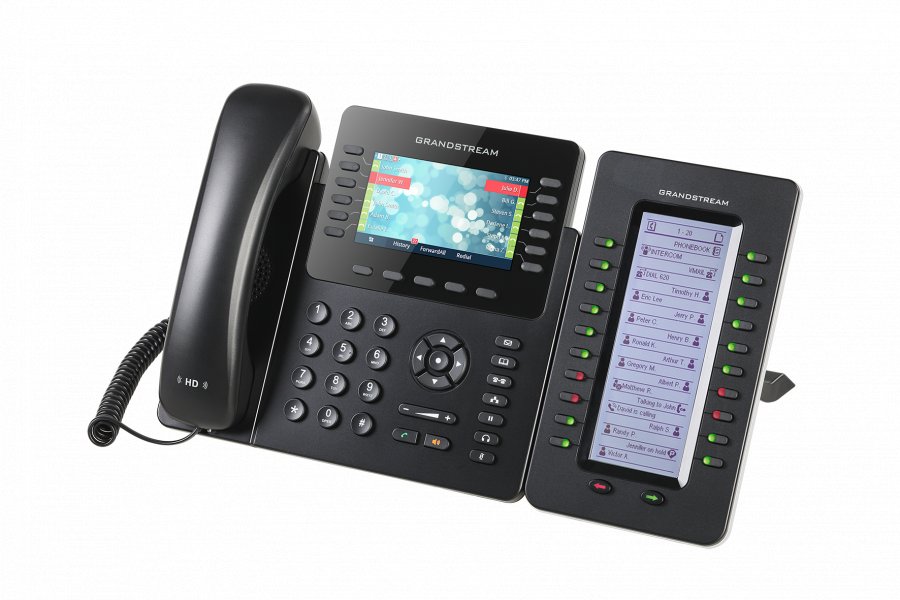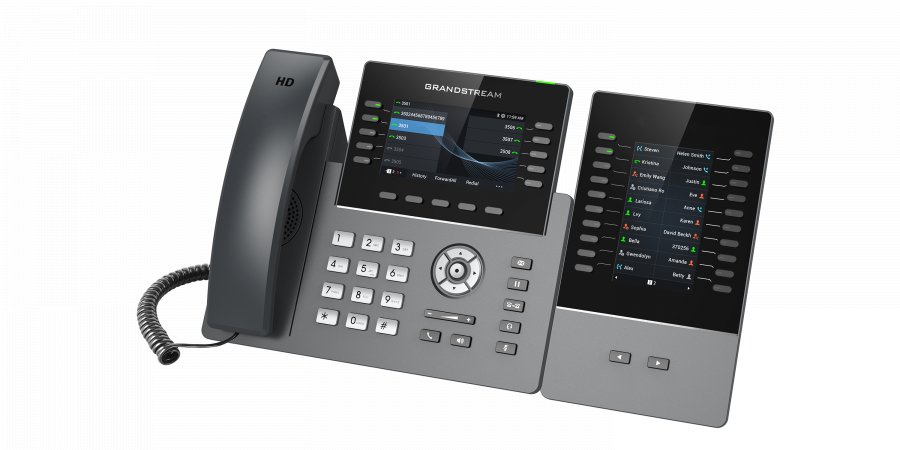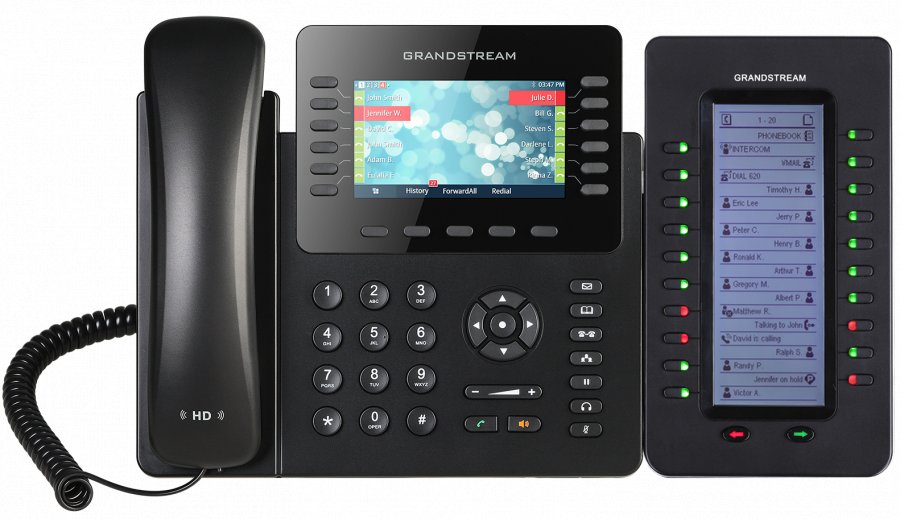
In an era where digital transformation is reshaping industries, can your business afford to rely on outdated communication methods? Modern business phone services, especially VoIP and cloud-based systems, are revolutionizing how organizations connect internally and externally, offering unmatched flexibility, security, and professionalism. These advanced tools enable seamless remote collaboration, cost savings, and rapid scalability—features essential for staying competitive in a fast-paced marketplace. But as technology evolves, so do the risks; ensuring robust security and compliance becomes critical. Are you prepared to upgrade now, or will hesitation leave you vulnerable to falling behind? Embracing these solutions isn’t just about improving efficiency; it’s about strategically positioning your organization for future growth, resilience, and superior customer engagement. The question isn’t whether to act but when—because in today’s interconnected world, the true backbone of success depends on reliable, innovative communication systems.
Boost Your Business Communications with FiberConX’s Reliable Phone Services
Looking for top-notch phone service for business in Canada? FiberConX Communications specializes in VoIP and IP business phone solutions designed to enhance your company’s connectivity. Our services include advanced features like voicemail, IVR, ring groups, and voicemail-to-mail, ensuring seamless communication for your team. Whether you need a scalable system for growth or reliable support, FiberConX has the perfect solution. Reach out to our experts at Sales@FiberConX.com or call 1.416.945.9210 to learn more about how our phone service for business can transform your business communications today.

Embrace the Future: How Business Communication Has Transformed for Success
Business communication has undergone a remarkable transformation over the past few decades. Gone are the days when handwritten notes and landline phones were the primary tools for staying connected. Today’s digital landscape offers instant, seamless communication channels that keep businesses agile and responsive. What once took days to send or receive now happens in real time, changing the way companies operate and compete.
This evolution isn’t just about speed; it’s about creating smarter, more flexible systems that grow with your business. Internet-based platforms like VoIP have replaced traditional landlines, providing cost-effective solutions that are easy to scale. These modern systems enable features like voicemail-to-email, call forwarding, and video conferencing, making it possible to connect with customers and colleagues from anywhere on the planet.
Professionalism has also evolved alongside technology. Automated attendants, intelligent call routing, and customized greetings help create a polished image, even for small teams. This consistency in communication elevates customer experience and reinforces trust. Remote work has become more practical and efficient, as employees can take calls, access information, and collaborate from virtually anywhere.
Security has become a critical part of this shift. As communication moves online, protecting sensitive data is more important than ever. Today’s systems include encryption, multi-factor authentication, and compliance tools that safeguard information without compromising accessibility. These features ensure that businesses can maintain privacy and meet industry standards while staying connected.
The core of this transformation lies in the ability to adapt quickly. Cloud-based systems allow businesses to manage their communication infrastructure remotely, adding users or features without disruption. This agility supports rapid growth and helps organizations respond swiftly to market changes, giving them a competitive edge.
In essence, the way businesses communicate today is fundamentally different from the past. It’s faster, more secure, and more versatile. Reliable communication isn’t just a convenience anymore; it’s a strategic asset that drives success. Embracing these technological advances sets the stage for future growth, resilience, and a stronger connection with your customers and team.
Unlock the Power of Modern Business Phone Technologies
Modern business communication relies on a range of technological systems that keep companies connected both internally and with their customers. Moving beyond the days when landlines were the only option, today’s organizations depend heavily on Voice over Internet Protocol (VoIP) and cloud-based platforms. These solutions use the internet to transmit calls, offering significant benefits such as lower costs, greater flexibility, and access to a suite of advanced features that improve overall efficiency.
Understanding these core concepts is essential for any business aiming to stay agile. Cloud-based systems allow for easy management of lines, features, and scalability—all from online dashboards. This eliminates the need for bulky hardware and complex updates, making it straightforward to add or remove users and adapt to changing demands. Scalability becomes almost effortless, supporting growth without disrupting daily operations.
Features like auto-attendants act as virtual receptionists, greeting callers and routing them automatically to the right department. Call routing ensures that each call reaches the appropriate person quickly, reducing wait times and enhancing customer satisfaction. Voicemail-to-email integration allows employees to access messages from anywhere, making remote work more seamless and responsive. These tools contribute to a professional, streamlined communication flow that benefits both staff and clients.
The shift from traditional landlines to internet-based systems also enhances security and compliance. Modern platforms include encryption, multi-factor authentication, and industry-specific compliance tools such as GDPR or HIPAA. These features help safeguard sensitive data, prevent breaches, and meet regulatory standards—all while maintaining reliable connectivity. Proper configuration and ongoing security practices are vital to protect your organization’s information.
This technological evolution also empowers businesses with greater flexibility. Cloud solutions allow for remote management, quick deployment, and easy updates, which are crucial during rapid growth or market shifts. They support mobility—so teams can work from anywhere—and ensure that communication systems are resilient against hardware failures or disasters, thanks to automatic call rerouting and backup options.
In essence, these foundational technologies form the backbone of modern business communication. They enable organizations to operate more efficiently, respond faster to customer needs, and adapt swiftly to new challenges. Grasping these core concepts helps companies leverage the full potential of their communication systems, positioning them for sustained success in an increasingly connected world.

Revolutionize Your Business with Scalable and Secure Phone Systems
Modern communication technologies like VoIP and cloud-based phone systems have fundamentally reshaped how businesses operate, offering a range of benefits that go well beyond cost savings. These systems are highly scalable, allowing companies to add new users, features, or expand to additional locations without the need for costly hardware upgrades. This flexibility ensures that as your business grows, your communication infrastructure can grow right alongside it, supporting rapid expansion and market responsiveness.
The impact on customer experience is equally significant. Features such as auto-attendants and intelligent call routing help create a professional, polished image by ensuring calls are handled efficiently and directed to the right department without delays. This smooth flow reduces wait times and boosts customer satisfaction, making interactions more seamless and leaving a positive impression. Mobile integration further enhances responsiveness, enabling employees to take calls and access critical information from anywhere, which is especially vital for remote teams or on-the-move staff.
Cost savings are a major driver behind the switch to modern systems. Traditional landlines often involve high setup fees and ongoing charges, particularly for long-distance calls. VoIP platforms leverage the internet to drastically cut these costs, sometimes by half, while also simplifying management. Remote administration reduces administrative burdens and allows for quick adjustments, enabling your business to adapt swiftly to changing needs without interrupting daily operations.
Security and compliance have become central concerns as communication shifts online. Today’s solutions incorporate encryption, multi-factor authentication, and industry-specific compliance tools like GDPR or HIPAA. These features help protect sensitive customer data, prevent breaches, and meet regulatory standards—all crucial for maintaining trust and operational integrity. Proper configuration and ongoing security vigilance are essential to fully realize these protections.
Yet, adopting new communication systems isn’t without challenges. Ensuring a stable internet connection is vital for maintaining call quality, and integrating these platforms with existing legacy systems can require careful planning. Cyber threats continue to evolve, making continuous security updates and staff training necessary to safeguard your organization. Addressing these issues proactively maximizes the advantages and minimizes disruptions.
The benefits of modern communication technologies extend beyond simple connectivity. They enable faster decision-making, improve collaboration across teams, and foster stronger customer relationships. By adopting these tools, organizations position themselves to be more agile, resilient, and competitive in a landscape that demands rapid adaptation and digital savvy.
The shift from traditional landlines to internet-based systems signifies a strategic move toward greater efficiency and professionalism. This transition not only reduces costs but also unlocks new capabilities that support growth and innovation. Companies that leverage these advanced systems gain a clear edge in providing superior service and staying ahead of competitors.
In summary, the impact of modern business phone systems is profound. They deliver scalable, secure, and feature-rich communication channels that empower organizations to operate more effectively. Embracing these technologies is no longer optional but essential for companies aiming to thrive in an increasingly connected, fast-paced world. Those who act now will set the foundation for sustained success and future-proof their business communication.
To explore more about how modern phone systems can transform your business, consider visiting this comprehensive guide on scalable and secure business phone solutions. Implementing the right technology now can ensure your organization remains competitive and efficient as it grows, making it a strategic investment in your company’s future.
Turning Technology into Strategy: Practical Steps to Modernize Your Communication
Implementing modern business communication systems starts with a clear understanding of your organization’s unique needs. Begin by evaluating your current setup—identify gaps in remote collaboration, customer support, or internal coordination—and then select solutions that directly address those areas. Choosing a reputable provider is crucial; look for platforms that are secure, scalable, and compatible with your existing infrastructure. Demos and reviews can help you make an informed decision, ensuring the technology aligns with your growth plans.
Once you’ve selected a system, develop a detailed rollout plan. Phasing the implementation—starting with one department or location—allows you to troubleshoot issues early and gather feedback. This approach minimizes disruption and helps your team adapt gradually, making the transition smoother. During deployment, focus on configuring features like auto-attendants, call routing, and mobile apps to match your business processes. Proper setup ensures calls are handled efficiently and reflect a professional image, even in a virtual environment.
Training staff on new tools is vital. Well-structured instruction on features such as call forwarding, voicemail-to-email, and remote access boosts confidence and productivity. Ongoing support, whether through vendor resources or internal help desks, keeps teams engaged and proficient. Encouraging feedback and making adjustments based on user experiences can further optimize the system’s effectiveness, ensuring it truly supports day-to-day operations.
Security remains a top priority throughout implementation. Set clear policies for data handling, access controls, and encryption. Many modern systems include built-in security features, but proper configuration and regular updates are essential to protect sensitive information. Educate your team on best practices, like strong password use and recognizing phishing attempts, to prevent security breaches. This proactive approach helps maintain trust and compliance while leveraging the full benefits of your new communication tools.
Finally, thorough testing before going live guarantees system reliability. Simulate various call scenarios to verify routing accuracy, call quality, and integration with other platforms. Address any glitches promptly to prevent future disruptions. Utilize support resources provided by your vendor—such as onboarding assistance, tutorials, and customer service—to refine your setup. Document procedures and establish guidelines to ensure consistency, so your organization can maximize the return on its investment and enjoy seamless, professional communication from day one.

Secure Your Business Future: The Critical Need for Reliable, Modern Communication Systems
In today’s fast-paced digital landscape, reliable communication isn’t just a convenience—it’s a critical driver of business success. Companies that proactively upgrade to modern phone systems, like VoIP and cloud-based platforms, position themselves to respond quickly, serve customers better, and operate more efficiently. These tools are foundational, supporting faster decision-making, stronger relationships, and a professional image that sets you apart from competitors.
Switching from traditional landlines to internet-based solutions offers clear advantages. Cost savings are significant, especially as your business grows, and the flexibility to add users or features on demand keeps your communication infrastructure aligned with evolving needs. With security features such as encryption and compliance tools, you can protect sensitive data and meet industry standards, building trust with clients and partners alike.
Beyond cost and security, the advanced features of modern systems—auto-attendants, call routing, mobile integration—enable a seamless customer experience and empower remote teams. These tools help deliver a polished, professional presence while facilitating quick, effective responses. In a competitive marketplace, this level of sophistication can make all the difference in gaining and retaining clients.
However, embracing these systems requires a strategic approach. Ensuring a reliable internet connection, selecting reputable providers, and training staff on new features are essential steps. Proper planning and phased deployment minimize disruptions and help your team adapt smoothly. Regular testing before going live ensures your setup performs reliably, so your business maintains its professional edge from day one.
Security must stay at the forefront of your efforts. Implementing best practices, maintaining system updates, and educating staff on cybersecurity measures protect your organization against threats. This vigilance ensures your communication channels remain trustworthy, confidential, and compliant with industry regulations.
The companies that act now, rather than delaying upgrades, will set the stage for future growth and resilience. Modern communication systems aren’t just an operational upgrade—they’re a strategic investment. They enable your organization to stay agile, responsive, and competitive in an increasingly connected world.
Ultimately, reliable, secure, and feature-rich communication is the backbone of a thriving business. Upgrading proactively ensures your team can operate seamlessly, serve customers effectively, and adapt quickly to market changes. The cost of inaction is high; the opportunity to lead with modern solutions is within reach.
Making this shift is about more than technology—it’s about shaping a future-ready organization. Those who embrace these tools today will enjoy smoother operations, stronger relationships, and a clear advantage tomorrow. Don’t wait until disruptions force your hand; act now to secure your place at the forefront of your industry.




